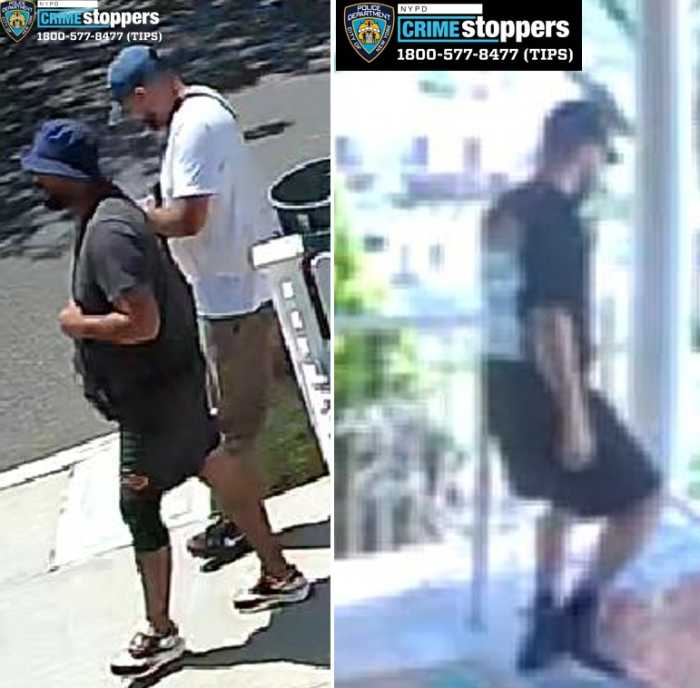Slow To Install Ignition Interlock
An upstate resident has been resentenced to 30 days in jail following a hearing in which it was determined that he failed to fully comply with mandatory ignition interlock device requirements following a DWI conviction in Queens last year.
Queens District Attorney Richard A. Brown identified the defendant as Ernan Perez, 39, of Bullet Hole Road in Carmel. Perez had previously pleaded guilty on Sept. 29, 2011, to operating a motor vehicle while in an intoxicated condition and was sentenced on Nov. 15, 2011, to a conditional discharge.
Among the conditions was a requirement that Perez install an ignition interlock device on his vehicle for one year. The installation of an ignition interlock device is a provision of Leandra’s Law, which-as of Aug. 15, 2010-requires all drivers convicted of driving while intoxicated to install such a device at their own expense in any vehicle that they own or operate.
The device is connected to the ignition system of a car and will not permit a vehicle to start if the motorist registers a blood alcohol level of .025 or higher. Failure to provide the court with proof of compliance can result in the court revoking the convicted motorist’s conditional discharge or probation sentence and that person being re-sentenced to incarceration.
At a hearing held last Friday, June 15, before Queens Criminal Court Judge Stephanie Zaro, it was determined that Perez did not get an ignition interlock device installed on his vehicle until Dec. 7, 2011. The law mandates that the device must be installed within ten days of sentencing and proof of installation be provided to the court and to the monitoring authority, the Queens District Attorney’s Office.
It was further determined that Perez failed to take his vehicle in for monthly service in January, February or early March of this year.
“This was, to the best of our knowledge, the first hearing conducted for a motorist’s non-compliance with ignition interlock requirements,” Brown said last Friday. “While violators typically plead guilty without a hearing, [Perez] tried once more -unsuccessfully, I should add-to escape punishment and his responsibilities. His incarceration is warranted in order to protect society from his reckless actions and for him to realize just how much society considers drunk driving a serious and dangerous offense.”
According to Brown, a motorist is required to go to an ignition interlock device installer or service provider approximately every 30 days so that the device’s usage history can be downloaded and provided to the appropriate monitoring authority. All uses of the vehicle are recorded by the device, including any attempted circumvention, as well as failed startup re-tests or failed or missed rolling re-tests.
Additionally, if a motorist misses a service visit, the ignition interlock device will enter into the lock-out mode and the vehicle will be disabled until it is brought in for service.
Testimony at last week’s hearing further determined that Perez eventually had his vehicle serviced on Mar. 15 but was late in getting his vehicle serviced in April and May 2012. Additionally, Perez failed a start-up test on May 26, when his vehicle’s ignition interlock device registered his blood alcohol level at .06.
Evidence presented at the hearing also determined that Perez then refused to take a re-test and then covered the device’s camera for the next hour, thus tampering with the device.
Following the hearing, Judge Zaro sentenced Perez to 30 days in jail on his violation of the conditional discharge and ordered that, when he is released, to have the ignition interlock device on his vehicle for an additional year and to wear a SCRAM (Secure Continuous Remote Alcohol Monitor) bracelet for six months.
In New York City, the Queens District Attorney’s Office serves as the citywide monitor of those individuals who have been required to install ignition interlock devices as part of their having been sentenced to a conditional discharge in any of the five boroughs while the New York City Department of Probation monitors compliance by those convicted motorists on probation.
Since the law went into effect in August 2010, the Queens District Attorney’s Office has been monitoring 3,836 cases citywide. Of that total, 2,818 motorists have indicated that they either do not own a vehicle or have sold or transferred ownership of their vehicle.
In cases where a vehicle is sold, the District Attorney’s Office requires a copy of the registration in the new owner’s name and a letter from the insurance company stating that the vehicle policy has been canceled. When title to a vehicle is transferred, the District Attorney’s Office requires, in addition to the above documents, an affidavit notarized and signed by the person to whom the title was transferred. Of the remaining 1,018 cases, 929 motorists have actually had ignition interlock devices installed on their vehicles.
The Citywide Monitoring Program at the Queens District Attorney’s Office is overseen by Assistant District Attorney Karen H. Rankin and Paralegal Dorota Marchelewicz.
Assistant District Attorney George J. Farrugia, a supervisor in District Attorney Brown’s Criminal Court Bureau, conducted the hearing under the supervision of Assistant District Attorneys Joan I. Ritter, bureau chief, and Kimberly A. Affronti and Floyd D. Herring, deputy bureau chiefs, and the overall supervision of James C. Quinn, senior executive assistant district attorney of the Trial Division, and Robert J. Masters, deputy executive assistant district attorney.



































